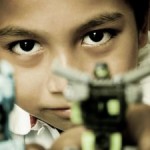Last week I started a three-part series on encouraging our kids, using techniques aimed at their developmental stages. I started by talking about how to encourage children from birth to 6. This week I’ll continue the conversation with some insights into the psychological development of kids between the ages of 6 and 12 as well as some encouraging things you can do for this age group.
Encouragement for Kids Ages 6 to 12
The middle years are a fairly quiet time in terms of psychological development, but children are learning many new skills and engaging in lots of activity. There are basically three general tasks kids this age are attempting to perform during this stage.
Task #1: Further defining personal and sexual identity – from interactions outside the family.
Task #2: Independence from Family
Task #3: Refining Skills
Ways to provide encouragement:
- Provide adult roll models for both genders.
- By ages 10 to 13 years, role models outside the home are important. Encourage guilt-free time away from the family.
- Offer your child many different experiences, (e.g., visiting the local museum, festivals, traveling, camping). They need not be activities which involve money: be creative.
- Don’t force your child into activities. Just because you didn’t have the opportunity for music lessons doesn’t mean your child wants the opportunity.
- Give unconditional acceptance and support as your child tries new activities and maybe fails or makes mistakes.
- Respect your child’s privacy both in terms of space and thoughts.
- Don’t overemphasize manners and tidiness. Children at this age have other priorities.
- Support your child as his/her conscious becomes more stable. Lying and stealing sometimes occur at this age. Treat them in a nonjudgmental fashion with logical or natural consequences.
- Provide lots of space and experiences for physical activity. This helps your child deal with stress and learn new skills.
- Be ready to answer your child’s questions about his/her body and sexuality.
Stop by next week for a look at encouragement options for kids throughout adolescence.

















{ 1 comment }
During this stage babies use their senses to learn about their environment. Movement is an important aspect of this stage as babies learn that they are separate from their environment.
{ 1 trackback }